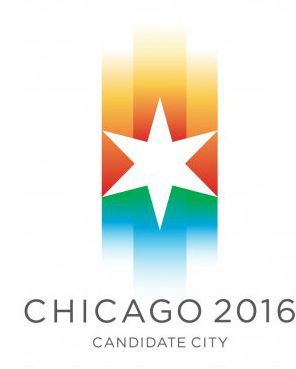| Sun | Mon | Tue | Wed | Thu | Fri | Sat |
|---|---|---|---|---|---|---|
| 1 | 2 | 3 | 4 | 5 | ||
| 6 | 7 | 8 | 9 | 10 | 11 | 12 |
| 13 | 14 | 15 | 16 | 17 | 18 | 19 |
| 20 | 21 | 22 | 23 | 24 | 25 | 26 |
| 27 | 28 | 29 | 30 | 31 |
CATEGORIES
RECENT ENTRIES
BLOG ROLL
High hurdles
Taking the podium at the Gleacher Center last week, Chicago sports economist Allen Sanderson apologized for his lingering fatigue from a recent trip to Japan. Once he began his lecture, “Chicago 2016: Bidding 'til Bankrupt?” Sanderson sounded most tired of inflated projections about the city’s potential financial benefit from the Olympics.
A February report, commissioned by the Chicago 2016 committee, predicted $22.5 billion in new economic activity if the city wins Friday’s International Olympic Committee vote. Otherwise impressed with Chicago’s bid committee, Sanderson leveled his strongest criticism at its willingness to present that estimate with a straight face. “It’s embarrassing,” he said. “They should be ashamed to shill in that way.”
For one thing, said Sanderson—a Journal of Sports Economics editorial board member—Olympic-related projects that exceed their projected costs actually would boost the “economic impact” in the committee’s formulation. An independent report issued last week put the potential net gain at $4.4 billion, citing much lower expectations for tourist spending, among other differences with the committee’s estimate. The report, by the Anderson Economic Group, sounded much more accurate to Sanderson, who said the bid committee's $22 billion projection is reasonable only "if they put a decimal point between the two 2s."
 Sanderson is not against the Olympics in principle. “I’m not really pro or con," he said. "It’s sort of in the details,” which is where things tend to get sticky. The city's project cost overruns—he mentioned Millennium Park and the Dan Ryan reconstruction—have become a civic sport of their own. Combine that local “tradition” with the global impulse toward lavish spending on the Games, and the financial foundation seems less firm. After budgeting $4-5 billion for the 2004 Olympics, Athens ended up spending $14-18 billion, Sanderson said. London’s 2012 plans started at about the same level and have already surpassed $20 billion.
Sanderson is not against the Olympics in principle. “I’m not really pro or con," he said. "It’s sort of in the details,” which is where things tend to get sticky. The city's project cost overruns—he mentioned Millennium Park and the Dan Ryan reconstruction—have become a civic sport of their own. Combine that local “tradition” with the global impulse toward lavish spending on the Games, and the financial foundation seems less firm. After budgeting $4-5 billion for the 2004 Olympics, Athens ended up spending $14-18 billion, Sanderson said. London’s 2012 plans started at about the same level and have already surpassed $20 billion.
It satisfies the economist in Sanderson that Chicago’s plan would leave no “white elephants” standing as empty monuments to the Games. Washington Park’s Olympic Stadium and natatorium, for example, would be scaled down for local use. The Olympic Village, which houses athletes, would be developed along the lakefront on the near South Side and converted for retail and residential use. Private developers would have to invest in the area, though, to prevent it from becoming the taxpayers’ albatross. As an attraction itself, Sanderson said, the Olympic Village lacks appeal because “tourists will hardly come flocking to Chicago in 2017 to walk through a housing development where the athletes used to sleep.”
Even to Sanderson, economics alone do not define the Olympics. He sees potential intangible value, like many choices people make without hope of financial gain. Unlike London, Paris, or New York, he puts Chicago in the category of cities that truly could benefit from the Games, properly administered. As Friday’s vote approaches, Sanderson would wager on Chicago over its perceived chief rival, Rio de Janeiro—although he expected Paris to win the 2012 Games that went to London. (The voting process is an Olympic event of its own.) If Chicago wins the Olympics, and the city breaks even, “I’d say, ‘Great.’ It’s not an investment; it’s a block party.”
Jason Kelly
RELATED READING:
RELATED LINKS:
September 29, 2009
